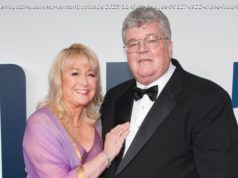This House Intelligence Committee hearing may be the closest an intelligence official has come to explaining the concerns behind the investigation into the Trump campaign and Russian interference.
There was enough intelligence tying members of President Donald Trump’s election campaign to Russian intelligence officers to worry former CIA director John Brennan before he left office in January, Brennan told Congress Tuesday.
It was the closest an American intelligence official has come to explaining the genesis of the FBI investigation into whether the Trump campaign cooperated in Russia’s meddling in the U. S. election, and it made clear that what Trump has called “the Russia thing” was viewed last year with the utmost seriousness by the intelligence community.
“Frequently, individuals who go along a treasonous path do not even realize they are on that path until it gets to be a bit too late, and that’s why my radar goes up early when I see certain things, ” Brennan said, explaining that he did not know if the contacts between Trump team members and Russia were “benign.”
Among those things that concerned him, Brennan said, was “intelligence that revealed contacts and interactions between Russian officials and U. S. persons involved in the Trump campaign.” He declined to reveal details or names in public, but said decades of experience working in intelligence had taught him that Russian practice is to “suborn such individuals.”
“It raised questions in my mind, again, whether or not the Russians were able to gain the cooperation of those individuals, ” he said.
He added that he did not know “if such collusion” existed, but “I know there was sufficient basis in intelligence that required further investigation by the bureau to determine whether U. S. persons were actively conspiring and colluding with Russian officials.”
Brennan’s testimony came in the first public hearing by the House Intelligence Committee since March 20, when then FBI director James Comey shocked the nation with the revelation that the FBI has been investigating a possible Trump team role in Russia’s meddling in last year’s presidential election since July.
Comey was fired May 9, and news reports since have said Trump on multiple occasions asked Comey to drop the investigation into Trump’s first national security adviser, Michael Flynn, who dined with Russian President Vladimir Putin in 2015, two months before he became Trump’s primary foreign policy adviser.
Brennan comments on what evidence existed to begin an investigation were almost pried out of him during questioning by Republican committee members who to this point have appeared dubious of the notion that Trump’s campaign team colluded with Russia.
Rep. Trey Gowdy, R-S. C. and Rep. Tom Rooney, R-Fla., were the two most aggressive Republican questioners, and solicited some of Brennan’s most detailed responses.
“Did you find evidence of collusion between the Trump campaign and Putin in Moscow?” Rooney asked at one point. Brennan responded by saying “I was worried by a number of the contacts that the Russians had with U. S. persons.”
Later, Gowdy followed up, asking “Did evidence exist of collusion, coordination, conspiracy between the Trump campaign and Russian state actors?”
Brennan balked at addressing the notion of evidence, saying his role was in intelligence gathering, not determining what could be used as evidence in a criminal matter.
But when Gowdy pushed him for an answer, he revealed that “intelligence” had detected “contacts and interactions between Russian officials and U. S. persons involved in the Trump campaign.” That “intelligence” was concerning enough to merit an FBI probe, he said.
Brennan also addressed other aspects of the Trump-Russia affair. He said Trump’s reported “spontaneous” sharing of so-called “code-word” intelligence from Israel with two visiting Russian diplomats had violated “two protocols” of behavior between spy agencies.
First, he testified, “Such intelligence, classified intelligence, is not shared with visiting foreign ministers or local ambassadors. It’s shared through intelligence channels, because it needs to be handled the right way and it needs to make sure it is not exposed.”
Beyond that, he said: “Before sharing any classified intelligence with foreign partners, it needs to go back to the originating agency to make sure that the language in it is not . going to provide sources and methods and compromise the future collection capability.”
Brennan prefaced his remarks by stating that he did not know whether news accounts of the matter were true. He also explained that during his time at the CIA, he had shared intelligence with Russian officials.
Meanwhile, in a Senate Armed Services Committee hearing, Sen. John McCain, R-Ariz., asked Director of National Intelligence Dan Coats if Trump had asked him to “push back on the Russia investigation” as was reported Monday by the Washington Post.
Coats said he would not discuss conversation he might have had with the President. Later, when Sen. Jack Reed, D-R. I., asked the question as a hypothetical, Coats said his role is to “gather intelligence to present to political bodies.”
“Any political shaping of that content would not be appropriate, ” he testified.






